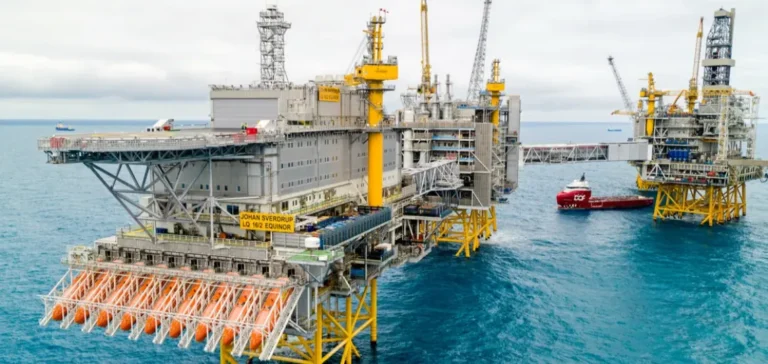Norway, Europe’s main supplier of natural gas and a significant oil producer, saw its energy output surpass expectations in July. According to data published by the Norwegian Offshore Directorate (NOD), the country recorded combined oil and gas production 3.9% higher than initial forecasts. This performance came despite an overall year-on-year decline in extracted volumes.
Total daily output, including crude oil, condensates, natural gas liquids, and gas, reached 0.672 million standard cubic meters, equivalent to about 4.23 million barrels of oil equivalent. This figure represents a 2.9% decrease compared to July 2024, marking a yearly decline but still exceeding monthly projections.
Significant increase in crude oil production
Crude oil production stood at 1.96 million barrels per day (bpd) in July, compared to 1.83 million bpd in the same period last year. This level also exceeded the forecast of 1.81 million bpd issued by the NOD. The increase reflects a temporary improvement in the availability of Norwegian offshore facilities.
In contrast, natural gas output declined on a year-on-year basis. Average daily volumes reached 328.3 million cubic meters (mcm), down from 360.7 mcm in July 2024. However, this performance remained 2.2% above the regulator’s forecast of 321.2 mcm.
Structural variability of offshore production
Norway’s energy sector is subject to significant monthly fluctuations due to regular maintenance operations and technical stoppages across more than 90 offshore fields. These variations are factored into the regulator’s forecasts but may be mitigated or amplified depending on operational conditions.
The figures published by the Norwegian Offshore Directorate are preliminary and may be revised in the coming weeks. Nevertheless, they provide a clear indication of the resilience of Norway’s energy sector amid strong European demand.






















